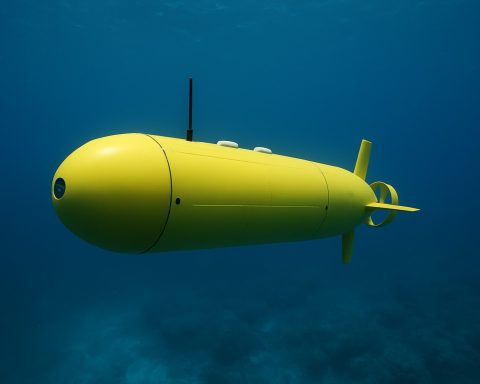- Porsche is pioneering the recycling of aging EV batteries to extract essential materials like nickel, cobalt, manganese, and lithium.
- Through mechanical shredding and refinement, defunct battery cells are transformed into ‘black mass,’ providing a sustainable resource for future batteries.
- This initiative aligns with anticipated EU battery regulations requiring higher recycled content and traceability by 2031.
- Approximately 65 tonnes of ‘black mass’ has already been produced, showcasing Porsche’s commitment to sustainability and innovation.
- By integrating closed-loop sustainability, Porsche safeguards its material supply from geopolitical risks and enhances its legacy in luxury sustainable vehicles.
- Through this project, Porsche aims to set new standards for the automotive industry, harmonizing environmental responsibility with performance excellence.
At a gleaming facility, where innovation meets sustainability, Porsche ventures into uncharted territory, turning aging EV batteries into a treasure trove of essential materials. This pioneering project, a testament to Porsche’s relentless pursuit of excellence, seeks to revolutionize how the automotive industry handles the surging demand for electric vehicle components.
As electric vehicles accelerate into the mainstream, the race for resources like nickel, cobalt, manganese, and lithium is more intense than ever. Instead of viewing retired batteries as mere waste, Porsche envisions them as a wellspring of potential. Through a complex process of mechanical shredding, defunct battery cells transform into ‘black mass’—a gritty substance poised to be the cornerstone of the future of sustainable energy.
This alchemical process has already produced approximately 65 tonnes of this valuable granulate from batteries no longer fit for the road. But the magic doesn’t stop there. The ‘black mass’ undergoes a sophisticated refinement, isolating high-purity elements crucial for crafting new batteries that meet Porsche’s stringent performance standards. The cleanliness and consistency of these elements are more than technical details; they are the lifeblood of Porsche’s promise of unparalleled driving experience.
The climax of this initiative heralds a new era for Porsche—one where closed-loop sustainability not only safeguards material supply from geopolitical instability but also aligns with forthcoming EU battery regulations. These regulations, looming on the horizon for 2031, urge higher recycled content and meticulous traceability, both of which Porsche is already embracing.
Through this landmark project, Porsche doesn’t merely respond to a market need; it fortifies its legacy as a trailblazer in the world of luxury sustainable vehicles. By blending environmental responsibility with cutting-edge technology, Porsche exemplifies the power of strategic foresight. It’s not just about driving cleaner cars but driving an entire industry towards a future where sustainability is as integral to performance as speed.
In this visionary leap, Porsche sets a new standard that transcends the automotive world. As these recycled battery cells gear up for real-world trials, the whisper of a brighter, greener future hums beneath the roar of a new era of sports cars.
Porsche’s Bold Sustainability Move: How Recycled Batteries are Powering the Future
Introduction
As the automotive world pivots towards an electrified future, sustainability initiatives are becoming more crucial than ever. Porsche, known for its dedication to performance and innovation, is taking a significant step by recycling aging EV batteries to recover essential materials. This initiative is not just about environmental stewardship but also about meeting rising demands for resources such as nickel, cobalt, manganese, and lithium.
The Process of Recycling and Its Benefits
Porsche’s pioneering recycling process begins with the mechanical shredding of defunct battery cells to produce ‘black mass.’ This substance is rich in metals and minerals that are essential for new battery production. Here are some pivotal aspects and motivations behind Porsche’s recycling initiative:
– Environmental Responsibility: By recycling materials, Porsche reduces its reliance on mining, which can be environmentally damaging. This aligns with global moves towards greener manufacturing processes.
– Material Supply Security: The recycling of battery materials mitigates geopolitical risks associated with resource acquisition, ensuring a stable supply chain.
– Compliance with Regulations: Porsche is aligning with anticipated EU battery regulations for 2031, which will require higher recycled content and better traceability of battery materials.
Future Industry Trends and Market Forecasts
– Rising Demand for EVs: The demand for electric vehicles continues to surge as companies and governments push for more sustainable transportation options. This will lead to an increased need for materials that Porsche aims to sustainably source through recycling.
– Closed-Loop Production Systems: More companies are expected to adopt closed-loop systems to minimize waste and secure supplies of raw materials. This can lead to a significant shift in how resources are managed within the industry.
– Potential for Innovation: The process of refining ‘black mass’ could spur new technological advancements, not only at Porsche but across the industry, resulting in more efficient battery designs.
Addressing Common Questions
How does the refining of ‘black mass’ work?
– The process isolates high-purity elements such as lithium, cobalt, nickel, and manganese. These elements are crucial for producing new, high-performance batteries.
What is the impact of this process on battery performance?
– The use of refined elements from recycled materials ensures that new batteries meet Porsche’s high standards for performance, energy density, and durability.
Pros & Cons Overview
Pros:
– Environmental sustainability by reducing waste and reliance on new raw materials.
– Security of materials through reduced dependency on fluctuating markets and geopolitical tensions.
– Innovation in recycling processes could lead to industry-wide improvements.
Cons:
– Initial high investment in technology and infrastructure.
– Complexity in ensuring material purity and quality during the recycling process.
Actionable Recommendations
– For EV Owners: Consider purchasing from brands that prioritize recycled materials, as this contributes to a sustainable ecosystem.
– For Industry Stakeholders: Explore partnerships that enhance recycling capabilities and focus on technological innovations that optimize material recovery.
Conclusion
Porsche’s ambitious project to recycle EV batteries is a crucial step forward in creating a sustainable future for the automotive industry. By integrating environmental responsibility with cutting-edge technology, Porsche not only upholds its legacy of excellence but also sets an industry standard. As these efforts unfold, we can expect a brighter, more sustainable future for electric vehicles.
For more information on Porsche’s initiatives and innovations, visit their official website.









